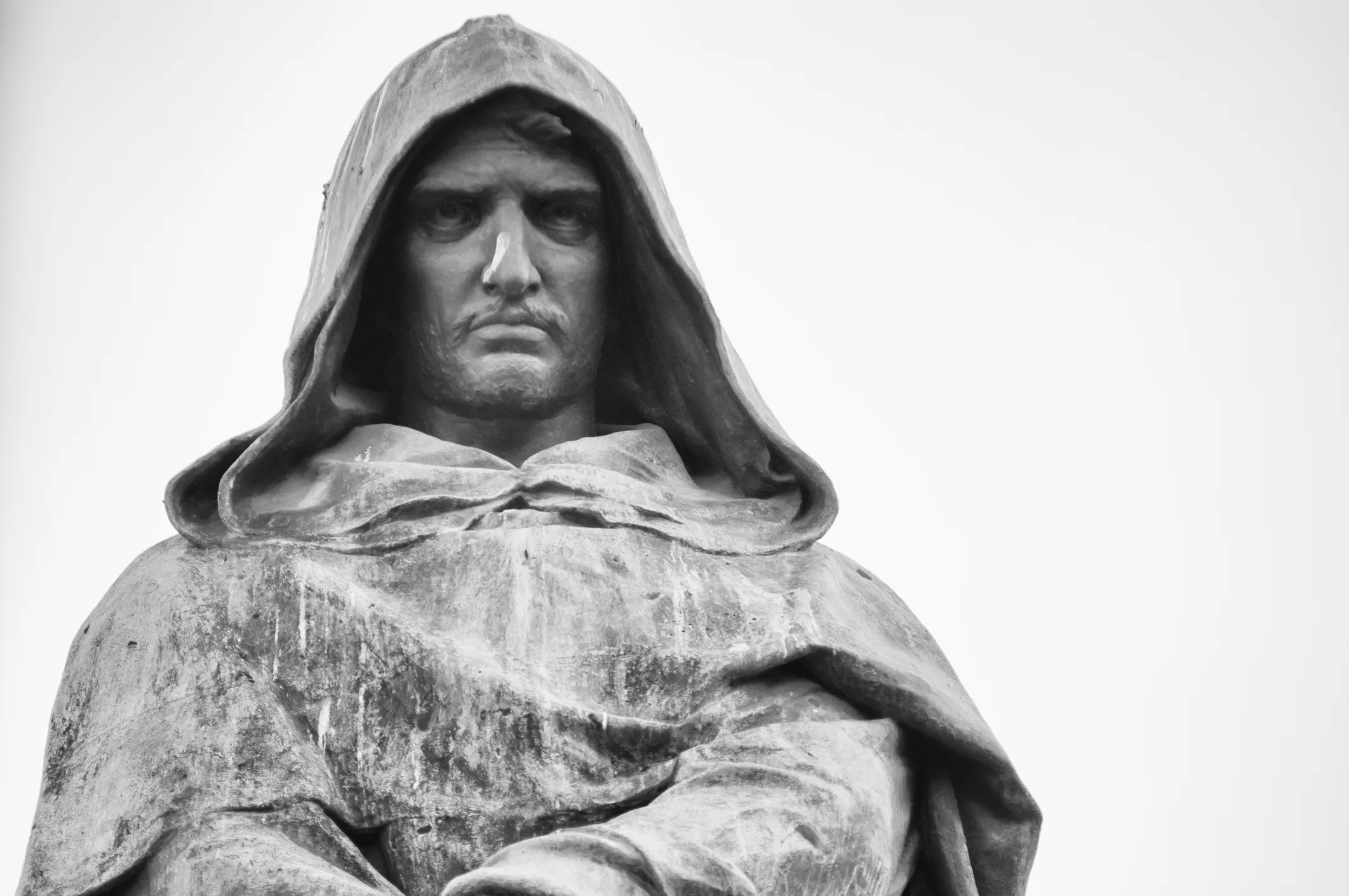‘Every being is wholly itself only in its own being.’ This is how Nicolaus Cusanus described the essence of self-identity. As a consequence of the destruction and loss of self-identity, he clearly recognized the ‘inauthenticity’ of existence: ‘In every other, it can only be represented inauthentically.’ For, he adds, ‘the non-transferable identity’ transferred to someone else inevitably occurs ‘at the cost of being different.
Thus the fate of European man for more than a millennium is outlined in a few words.
Europe had the lot of having to live in a faith that was not its own and did not correspond to its essence, experience, feelings, and thoughts, which violated its ‘own being’, transformed its consciousness through the dualistic tearing of everything that remained here and for many, and by setting foreign conflicting values, it reversed its inner compass, destroyed the sleepwalking security in following the ‘right path’. Because the loss of one’s own religion as a holistic reference to being means the total loss of one’s own identity.
Through a painful process of re-education that took centuries, the people more or less became Christians according to the self-understanding preached to them, which saw them as weak sinners in need of God’s grace and redemption through the death of His son, at the cost of their own identity. The bravest, most independent and most creative spirits resisted the demands of the foreign faith and, in the friction of contradiction, ignited the flame of their own religious conviction arising from their innermost essential need. Countless thousands took on the monumental challenge without regard for themselves, which degraded and crippled their humanity and what was most sacred to them, with their courage and creative thinking. Initially, it was only a few great individuals, whose spirit leaves an unbroken trace to the present day, from Pelagius to Storm, Hebbel, Rilke and beyond, from Eriugena and Giordano Bruno through Goethe to Teilhard de Chardin and Saint-Exupéry, from Meister Eckhart and Nikolaus Cusanus through Jakob Böhme to Heidegger and Jaspers. Their number is constantly growing, and in the present day it has developed into a far-reaching, cross-national, cross-societal, and cross-generational religious community, representing Europe’s religious identity.
What could more strikingly demonstrate Europe’s religious identity than the spontaneous protests and independent opposition of its heretics as creators of their own religious innovations with their own perspectives, and their often astonishing agreements with one another over centuries and across national borders, often arising independently of each other and without knowledge of each other, but simply from their common, inherent way of undergoing the same experience of God, and the same law of nature in their breast?
In its thousands of heretics, Europe repeatedly and continuously came back to itself from its original source, becoming aware of itself, its essence, and its own divine depth in its greatest spirits through its own European religion, which will unfold sustaining forces across the age of self-alienation that is heading towards its demise.
Everything can only truly be if God constitutes its being.
However, those who only protested, who did not muster the courage for their own selves and the strength for an independent path off the beaten ideological track, threw overboard any belief with the ‘not believable belief in the Christian God’ diagnosed by Nietzsche, sweeping away any ‘transcendence’, meaning any ‘transcending’ of the superficial world of things given to the senses and the mind, with the Christian ‘afterlife’. By tearing apart every bond, cutting their own roots, and thus depriving themselves of all sources of their power, they have exposed themselves as uprooted and homeless to the terror of total nihilism predicted by Nietzsche, with all the fears and despair of ultimate meaninglessness and lostness of their barren existence, which craves for destruction, ending, and death. The Christian degradation and desecration of human beings, the world, and nature has wrought its final victims in these protesters against the Christian God, in these dropouts from meaning, in these emigrants from the hopelessness of this world – which, after the severing of the ‘afterlife’, is a ‘this world’ of non-being, ‘surrounded by nothingness’. Their abandonment of all transcendence is revenged on them with the loss of being.
For in their radicalism, they themselves have destroyed the essential element for a healthy identity, which Antoine de Saint-Exupéry reminds them of with the prayer of the Great Kaid in the city of the desert, but which may also stand for those who are on the way to their true religious identity:
Connect me again to the tree from which I came!
I am without meaning when I remain alone
Here I am dissolved and provisional.
I have the desire to be.
(from Sigrid Hunke, ‘Kampf um Europas religiöse Identität’, in Pierre Krebs (ed.), Mut zur Identität: Alternativen zum Prinzip der Gleichheit II, 1988)









